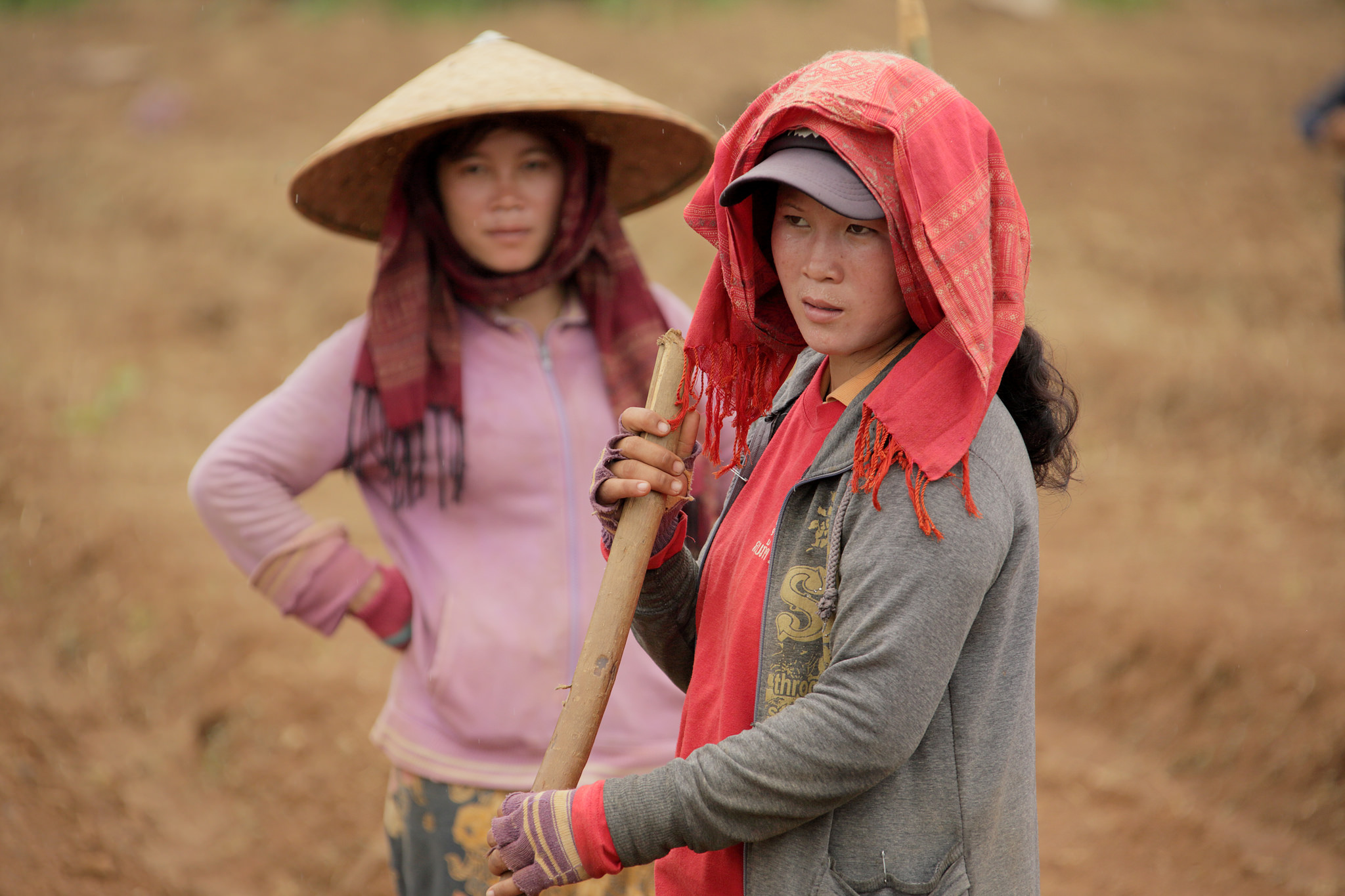Moderated by Kalpana Giri from RECOFTC, the panel on "Land Governance and Gender" featured a diverse round of gender experts discussing the inseparability of gender equality and good land governance. With talk of gender more prominent than ever, the session was certainly an interesting and poignant way to close out day two of the Forum!
Hilary Faxon, the first panelist, shared key outcomes from a study on Land and Gender, conducted by the Land Core Group in Myanmar. She stressed that good land governance must incorporate women´s knowledge, recognize diversity across communities, and promote gender equality and women´s participation. The amplification of women´s voices is not only a creative outlet, but builds the necessary agency in the women to speak up and participate actively in their communities´ land governance processes.
Clara Park from the Food and Agriculture Organization of the United Nations (FAO) then presented a study on "Women, Land and Kinship; the impact of agrarian transformation on customary tenure among indigenous communities in Northeastern Cambodia". She concluded that the highest risk for women is represented by external threats of land dispossession, and that active participation of women in land management structures has proven to be the most effective mechanism to ensure accountability and guarantee fair decisions on land.
Sharanya Nayak from the RITES Forum India shared stories and concrete practices from India. She highlighted how economic models which are pushed unto ethnic groups and their traditional practices – as well as patriarchal systems and push factors like climate change – are detrimental to women´s equal access to land and resources.
Chansouk Insouvanh, an independent Social Safeguards Specialist, gave us her insights on social safeguards within land governance promotion in Laos. She found that households in which women were aware of their land rights would experience more arguing around decisions related to household and investment. Viewed by some as a negative impact, she used this example to illustrate how vulnerable the sector is to different perspectives rooted in culture and personal understanding.
Gender issues, the panel agreed on, are always connected to power relations, local politics and social factors. These factors need to be acknowledged by governments and development actors, if we are to strive for good land governance. Women´s participation in land-related discussion, decision-making, and management is key to good land governance. The panelists also highlighted that access to legal information is essential for empowering women to know and claim their land rights, and to meaningfully participate in local land governance. Approaches to foster active participation need to stay flexible and centered around people instead of generic assumptions, especially since women would usually not speak up by themselves but needed more proactive encouragement by facilitators.
The panel concluded that gender needs to be "unpacked" instead of generalized, and women´s voices need to be heard and amplified to make them active and empowered agents of the land governance process. Striving for a continuous dialogue and open exchange will keep practitioners and decision-makers from simply "checking the gender box"!
This blog post was written by Sandra Bode. Sandra has been working for women’s empowerment for the past 19 years and more specifically in the gender and land nexus for the past seven years. She is the founder and manager of Laos’ first community center.

